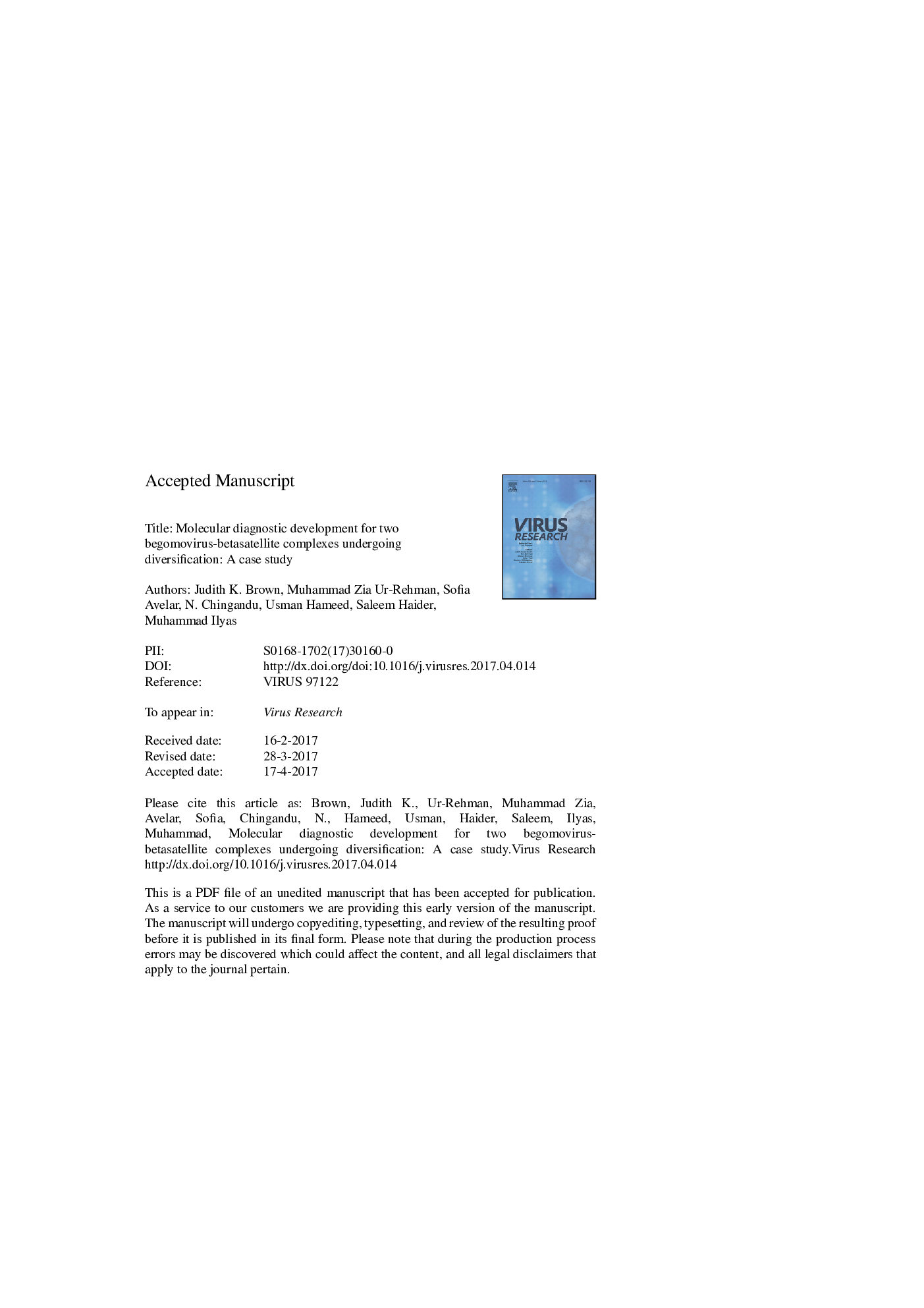| کد مقاله | کد نشریه | سال انتشار | مقاله انگلیسی | نسخه تمام متن |
|---|---|---|---|---|
| 8752076 | 1594316 | 2017 | 39 صفحه PDF | دانلود رایگان |
عنوان انگلیسی مقاله ISI
Molecular diagnostic development for begomovirus-betasatellite complexes undergoing diversification: A case study
ترجمه فارسی عنوان
توسعه تشخیصی مولکولی برای مجتمع های گاموویروس-بتایساتلیدی تحت تنوع: مطالعه موردی
دانلود مقاله + سفارش ترجمه
دانلود مقاله ISI انگلیسی
رایگان برای ایرانیان
کلمات کلیدی
موضوعات مرتبط
علوم زیستی و بیوفناوری
ایمنی شناسی و میکروب شناسی
ویروس شناسی
چکیده انگلیسی
At least five begomoviral species that cause leaf curl disease of cotton have emerged recently in Asia and Africa, reducing fiber quality and yield. The potential for the spread of these viruses to other cotton-vegetable growing regions throughout the world is extensive, owing to routine, global transport of alternative hosts of the leaf curl viruses, especially ornamentals. The research reported here describes the design and validation of polymerase chain reaction (PCR) primers undertaken to facilitate molecular detection of the two most-prevalent leaf curl-associated begomovirus-betasatellite complexes in the Indian Subcontinent and Africa, the Cotton leaf curl Kokhran virus-Burewala strain and Cotton leaf curl Gezira virus, endemic to Asia and Africa, respectively. Ongoing genomic diversification of these begomoviral-satellite complexes was evident based on nucleotide sequence alignments, and analysis of single nucleotide polymorphisms, both factors that created new challenges for primer design. The additional requirement for species and strain-specific, and betasatellite-specific primer design, imposes further constraints on primer design and validation due to the large number of related species and strains extant in 'core leaf curl virus complex', now with expanded distribution in south Asia, the Pacific region, and Africa-Arabian Peninsula that have relatively highly conserved coding and non-coding regions, which precludes much of the genome-betasatellite sequence when selecting primer 'targets'. Here, PCR primers were successfully designed and validated for detection of cloned viral genomes and betasatellites for representative 'core leaf curl' strains and species, distant relatives, and total DNA isolated from selected plant species. The application of molecular diagnostics to screen plant imports prior to export or release from ports of entry is expected to greatly reduce the likelihood of exotic leaf curl virus introductions that could dramatically affect the production of cotton as well as vegetable and ornamental crop hosts.
ناشر
Database: Elsevier - ScienceDirect (ساینس دایرکت)
Journal: Virus Research - Volume 241, 15 September 2017, Pages 29-41
Journal: Virus Research - Volume 241, 15 September 2017, Pages 29-41
نویسندگان
Judith K. Brown, Muhammad Zia Ur-Rehman, Sofia Avelar, N. Chingandu, Usman Hameed, Saleem Haider, Muhammad Ilyas,
